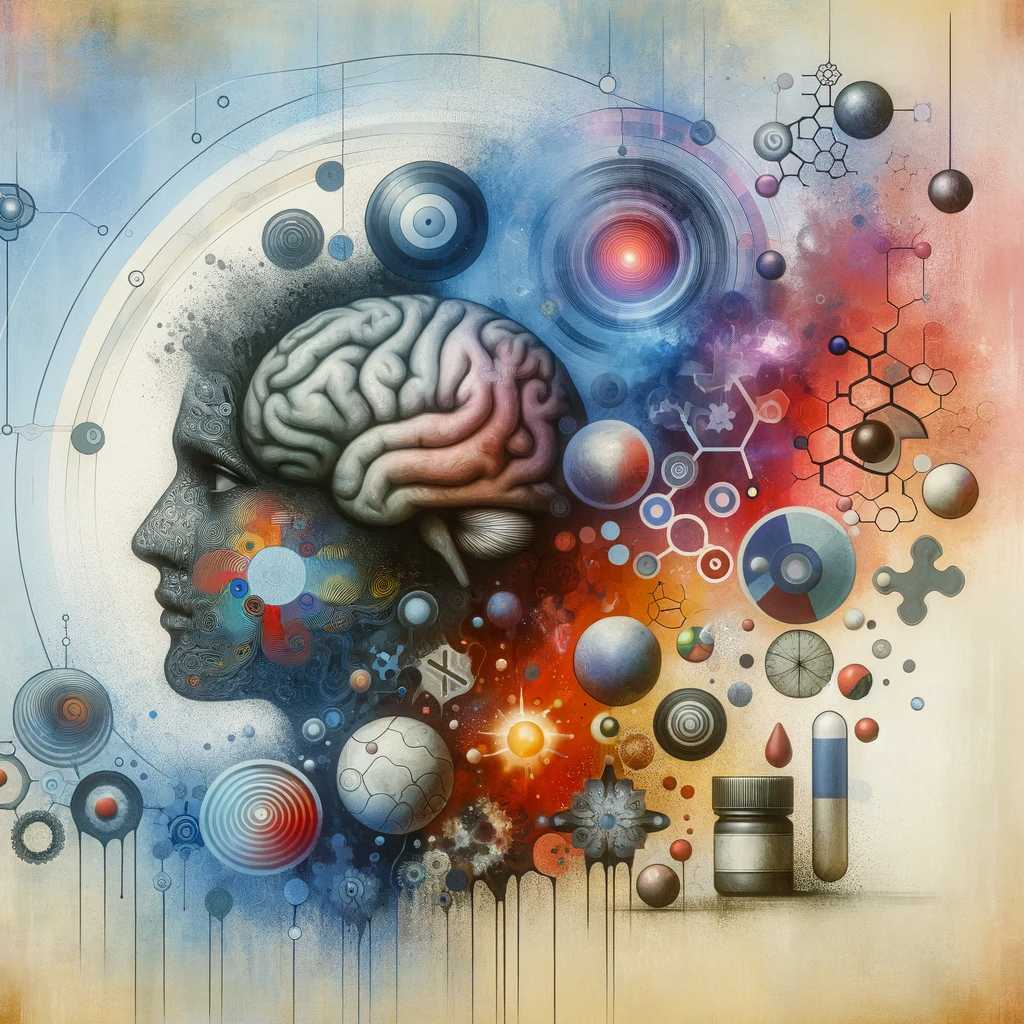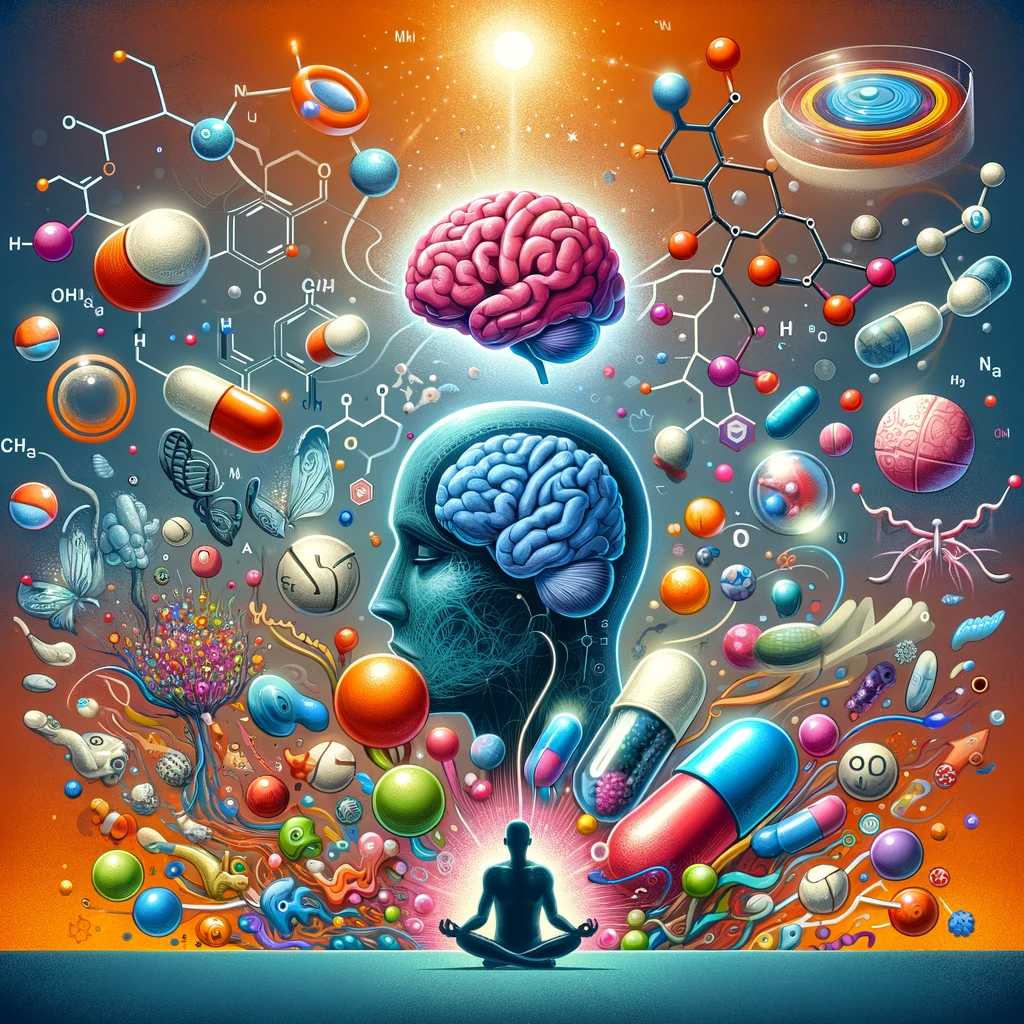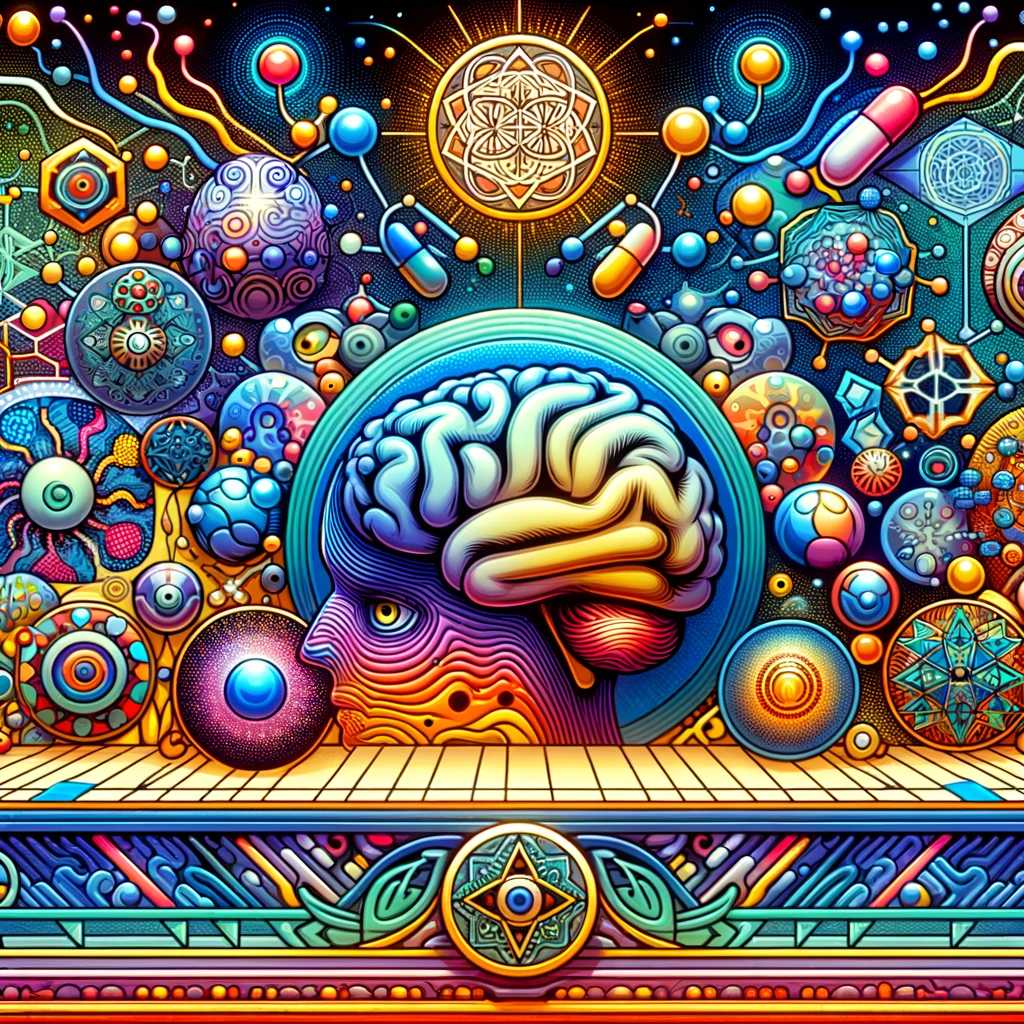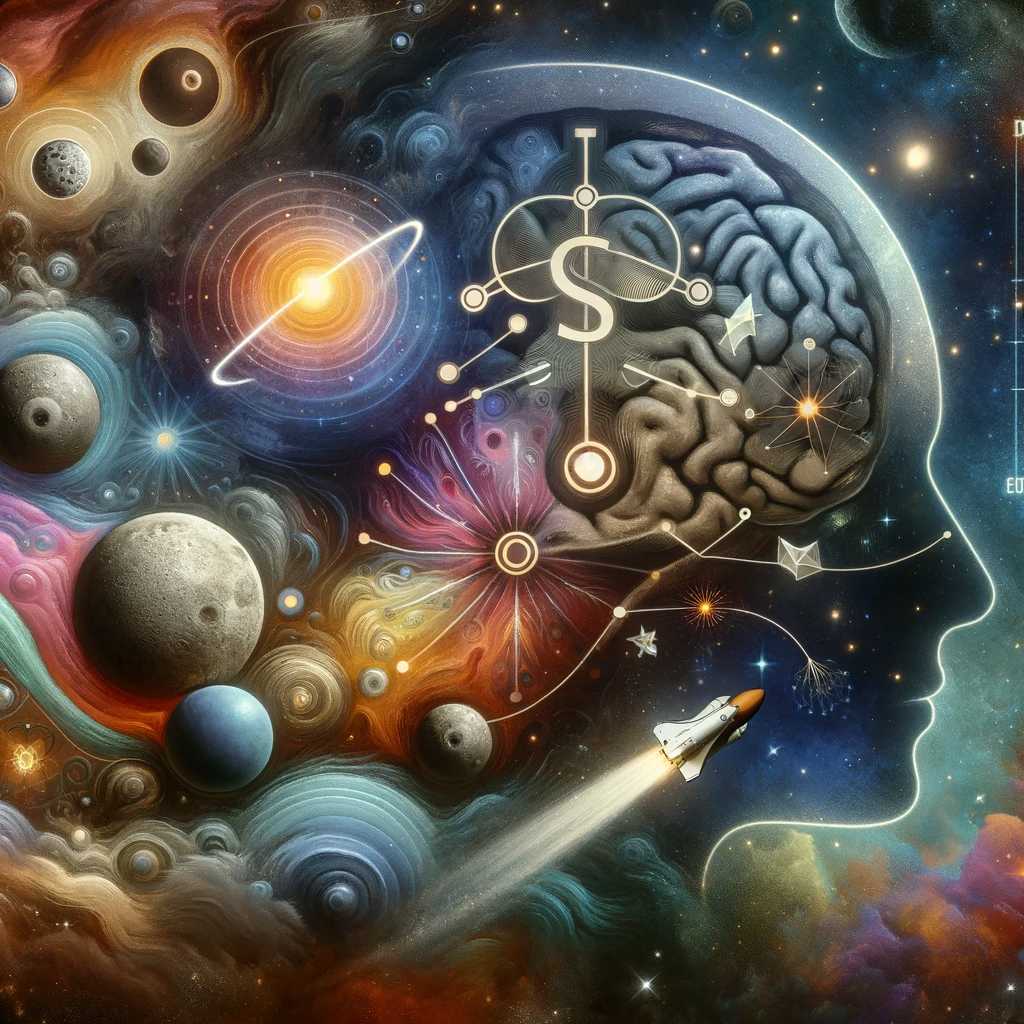I. Introduction
Context and Relevance
Depression, a pervasive mental health challenge, affects millions globally. Despite advancements in psychiatry, its underlying mechanisms remain partially understood, fueling ongoing research and debate. Central to this quest is serotonin, a neurotransmitter often linked with mood regulation. This blog post delves into the intricate world of serotonin, exploring its multifaceted role in the human body and its controversial connection with depression.
Objectives of the Blog Post
We aim to unravel the complexities surrounding serotonin: its biochemical nature, physiological roles, and its alleged link to depression. Furthermore, we will explore the phenomenon of serotonin syndrome and dissect the role of SSRIs (Selective Serotonin Reuptake Inhibitors) in treating depression. This post is designed to provide a comprehensive overview for both medical professionals and individuals seeking a deeper understanding of these topics.
II. What is Serotonin?
Chemical Nature and Production
Serotonin, or 5-hydroxytryptamine (5-HT), is a monoamine neurotransmitter derived biochemically from the amino acid tryptophan. Through a process involving hydroxylation and decarboxylation, serotonin is produced, playing a pivotal role in various bodily functions. While serotonin is best known for its presence in the central nervous system, approximately 90% of the body’s serotonin is found in the gastrointestinal tract, where it regulates intestinal movements. The remaining serotonin is distributed between the central nervous system and blood platelets
Physiological Roles
Serotonin’s influence extends beyond mood regulation. It is involved in an array of physiological processes including sleep, thermoregulation, learning, memory, pain management, and even biological rhythms. In the brain, serotonin impacts cognition, reward perception, and various aspects of social behavior. Interestingly, in less complex organisms like invertebrates, serotonin regulates basic processes like feeding
Serotonin in the Brain and Body
In the human body, serotonin is synthesized in different locations, including the central nervous system’s raphe nuclei, the gastrointestinal tract, and in certain cells like Merkel cells of the skin. Its secretion is both luminal and basolateral, affecting gastrointestinal motility and influencing vascular functions. The majority of serotonin in the CNS is used in mood regulation, appetite control, and sleep cycles
Metabolism and Receptors
After playing its part in signal transmission, serotonin is metabolized mainly to 5-hydroxyindoleacetic acid, chiefly by the liver. Its action is mediated through various serotonin receptors located on nerve cells and other tissues. These receptors, differing in function and location, dictate serotonin’s diverse physiological effects. Serotonin’s action concludes with its reuptake from the synaptic cleft, primarily through the serotonin transporter (SERT).

III. The Connection Between Serotonin and Depression
Historical Overview
The link between serotonin and depression has been a focal point of psychiatric research since the 1960s. The ‘serotonin hypothesis’ suggested that depression resulted from a deficiency in serotonin levels or activity. This theory gained widespread attention in the 1990s with the introduction of Selective Serotonin Reuptake Inhibitors (SSRIs), a new class of antidepressants. Despite its long-standing influence, recent studies challenge the direct causality between serotonin levels and depression, suggesting the relationship may be more complex than previously thought
.
Current Scientific Debate
Recent comprehensive reviews and meta-analyses indicate a lack of consistent evidence supporting the serotonin hypothesis of depression. Contrary to popular belief, most studies do not show a significant difference in serotonin levels or activity between individuals with and without depression. Furthermore, methods designed to reduce serotonin availability, like tryptophan depletion, do not consistently lower mood in healthy individuals or those with a predisposition to depression
Misconceptions and Public Perception
Despite scientific evidence, the concept of depression being caused by a ‘chemical imbalance’ of serotonin remains deeply ingrained in public consciousness. This misconception is perpetuated by the widespread use of SSRIs and the simplification of depression’s etiology in popular media. However, it’s crucial to understand that depression is a multifaceted disorder influenced by a myriad of biological, psychological, and environmental factors
Implications for Treatment and Research
The ongoing debate about serotonin’s role in depression has significant implications for treatment strategies and future research. While SSRIs and other serotonin-targeting medications are effective for some individuals, understanding the nuanced mechanisms of depression is essential for developing more effective and personalized treatments.
IV. What is Serotonin Syndrome?
Definition and Overview
Serotonin syndrome is a potentially life-threatening condition resulting from excessive serotonin levels in the body, often due to medication misuse or interaction. This syndrome can manifest with a range of symptoms, from mild to severe, and requires immediate medical attention
Symptoms and Severity
The symptoms of serotonin syndrome typically develop within hours of medication changes and include agitation, confusion, rapid heart rate, high blood pressure, muscle rigidity, and severe cases can lead to high fever, seizures, and even unconsciousness. The severity of these symptoms can vary widely, and in extreme cases, serotonin syndrome can be fatal
Causes and Triggering Factors
Serotonin syndrome often occurs when medications that increase serotonin levels are combined. This can happen with certain antidepressants, migraine medications, opioid pain medications, and even some over-the-counter and herbal supplements. In some instances, an intentional overdose of antidepressant medications can also trigger serotonin syndrome
Management and Prevention
Effective management of serotonin syndrome involves discontinuing the causative drugs and providing supportive care to stabilize the patient. Preventive measures include cautious prescription practices, patient education about medication interactions, and regular monitoring of drug levels when multiple serotonin-affecting medications are used.
V. SSRIs: Antidepressant Drugs and Their Mechanism
Introduction to SSRIs
Selective Serotonin Reuptake Inhibitors (SSRIs) represent a major class of antidepressants widely prescribed for treating depression and anxiety disorders. These medications are preferred due to their relatively safer profile and tolerability compared to older antidepressants.
Mécanisme d'action
SSRIs work by inhibiting the reuptake of serotonin in the brain. This action increases the availability of serotonin in the synaptic cleft, potentially enhancing mood and alleviating depressive symptoms. SSRIs selectively target the serotonin transporter (SERT), minimizing the effects on other neurotransmitters, which accounts for their favorable side effect profile compared to older antidepressants
Examples and Applications
Common SSRIs include fluoxetine (Prozac), sertraline (Zoloft), paroxetine (Paxil), and citalopram (Celexa). These medications are used not only for major depressive disorder but also for a range of conditions including anxiety disorders, obsessive-compulsive disorder, and post-traumatic stress disorder.
Efficacy and Controversies
While SSRIs are effective for many patients, their efficacy and the underlying mechanism remain subjects of debate. Some studies suggest that the benefits of SSRIs may also derive from a placebo effect or their ability to blunt emotional responses. This underscores the need for personalized treatment approaches in mental health, considering the complex nature of depression and its varied response to medication.
VI. Conclusion
Summary of Key Points
This post explored serotonin’s complex role in the human body, its debated connection with depression, the phenomenon of serotonin syndrome, and the use of SSRIs in depression treatment. We’ve seen that while serotonin plays a multifaceted role in bodily functions, its direct link to depression is not as clear-cut as once believed.
The Complexity of Depression
Depression is a multifactorial disorder, influenced by genetic, environmental, and psychological factors. The simplification of its causes to a mere chemical imbalance does not capture the complexity of this condition. Future research must continue to explore the various facets of depression, seeking more comprehensive and personalized treatment strategies.
Future Perspectives
As our understanding of mental health evolves, so must our approaches to treatment. Acknowledging the limitations of current theories like the serotonin hypothesis is a crucial step in this journey. Ongoing research and a willingness to explore new paradigms will pave the way for more effective interventions in mental health care.
VII. References
https://www.mayoclinic.org/diseases-conditions/serotonin-syndrome/symptoms-causes/syc-20354758
https://www.healthline.com/health/mental-health/serotonin#functions
https://en.wikipedia.org/wiki/Serotonin
https://en.wikipedia.org/wiki/Serotonin_syndrome
https://www.nature.com/articles/s41380-022-01661-0




0 Commentaire pour "Sérotonine et dépression"